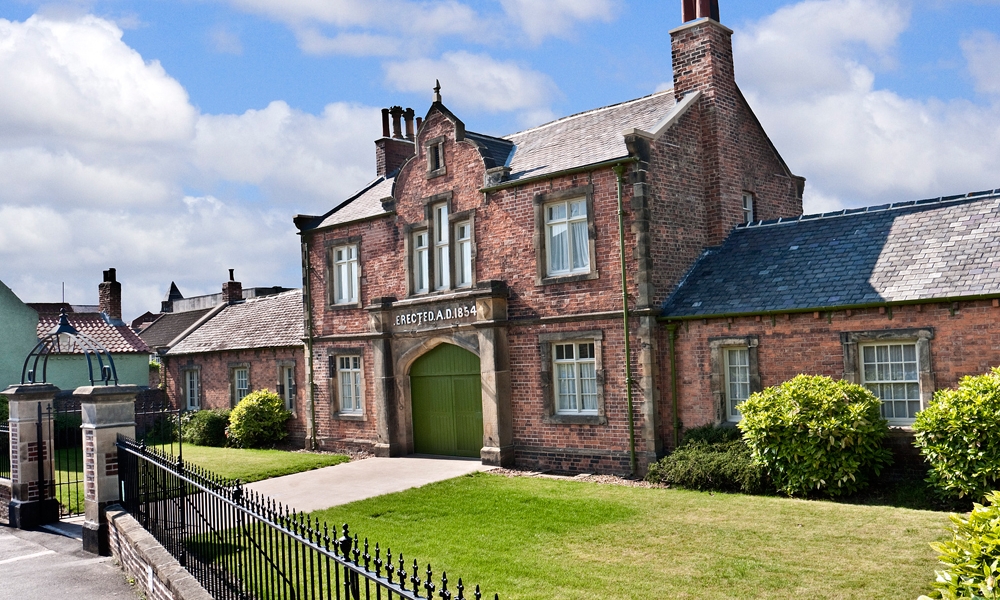We’re starting a new project evaluating supported volunteering at the Ripon Museum Trust.
A unique collaboration between the International Centre for Mental Health Social Research (ICMHSR) at the University of York and the Ripon Museum Trust (RMT) is starting to collect data for an evaluation of supported volunteering at the museums in Ripon, North Yorkshire.
Supported volunteering
Volunteers play an important role in communities as they use their skills and expertise for the benefit of others. Their unpaid contributions make a real difference and many community or voluntary sector organisations cannot operate without them. RMT uses volunteers to help run the museums by working on the front desk; showing visitors around; hosting school groups; conducting research for exhibitions; or maintaining the buildings and gardens, for example.
People volunteer for a number of reasons, such as to gain new skills for future employment or to find a fulfilling role in retirement. There is growing evidence of the importance of volunteering for our mental wellbeing. However, people with low mental wellbeing or a diagnosed mental health problem often find it difficult to engage with formal volunteering opportunities. While the growth in social prescribing has brought many more potential volunteers into voluntary sector organisations, there has not been a similar growth in funding to provide support for them in these roles. In addition, organisations often lack the capacity or expertise to provide additional support for people to volunteer, which means that many are excluded from opportunities to develop new skills or contribute to their local communities.
Supported volunteering provides a way for people who require additional support to access volunteering opportunities. However, limited research has been conducted on supported volunteering so we do not know enough about how, and if, it might help people.
Research project
This project, which I am leading, aims to evaluate supported volunteering at the Ripon museums. It aims to:
- explore how and why supported volunteering works and develop a manual to share this with others;
- explore outcomes for people receiving supported volunteering and the organisation providing it;
- assess costs and potential economic consequences of supported volunteering.
The data collection will be conducted by Dr Beth Casey from ICMHSR. She will spend time at RMT interviewing volunteers and staff about their experience of the support that is provided to volunteers. She will observe the support being provided and volunteers will have an opportunity to keep an audio or written diary about their experiences. This data will be explored in depth to further understanding about why supported volunteering works, for whom it works best, and the organisational context required to help it work best. A workshop will bring together volunteers, staff and external experts to enable this to be mapped out. This will lead to the development of a manual for supported volunteering so that learning from the project can be shared.
Dr Casey will also interview volunteers receiving support at RMT when they first come in to the organisation, and six months later, to explore any changes in their mental wellbeing and other outcomes such as reductions in loneliness, resourcefulness of their social networks and use of health, social care and other services. The research will collect data on both the costs of supported volunteering and the potential economic consequences for the local community and wider society. ICMHSR researchers will also analyse RMT’s annual volunteer survey to explore changes in mental wellbeing within the organisation as a whole.
Project co-investigators Annette Bauer (London School of Economics and Political Science) and Dr Stephanie Tierney (University of Oxford) bring vital expertise to the project. The project team also includes Vicki Lever, Volunteers and Operations Manager at RMT, who is helping to facilitate access to staff and volunteers for the ICMHSR researchers.
The project team is currently recruiting volunteers from RMT to join other researchers, and heritage and wellbeing experts, to meet regularly with the project team to advise on the conduct of the study which will be on-going until December 2023. Findings from the project will be shared within the museums sector at conferences, via social media and the ICMHSR webpages, and in academic papers. The findings will also inform the development of the RMT Strategic Plan; a National Lottery Heritage Fund redevelopment scheme for the Ripon museums, which is starting shortly; and the on-going RMT programme funded by Arts Council England.
I am delighted that we are part of this research project. The past two years have really demonstrated to us all here that volunteer participation in local community activity benefits mental health. We have a 40-year track record delivering our museums through our wonderful group of volunteers and we always seek ways to learn from our experience and improve the way we work. Developing much better data about the benefits of museum volunteering will be hugely valuable to achieving RMT’s strategic aims, making the case for resourcing our work and for helping other museums develop this important role.
Helen Thornton, RMT Director
I’m really looking forward to getting this project underway. It is an excellent opportunity to develop evidence about the process and outcomes of supported volunteering. This project should provide valuable guidance for RMT and other organisations in how best to support volunteers. I hope that it will highlight the added value to the voluntary sector of funding for people who can support volunteers who may have some additional needs. We need to ensure that volunteering opportunities are available to everyone who could benefit from them.
The project is funded by the National Institute for Health Research Three Research Schools Mental Health Practice Evaluation Scheme.



Great content! I hope that you help more people in the future! Nice work!